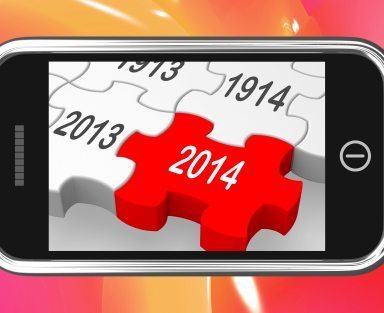Editor’s Note: With 2014 now upon us, RCR Wireless News has gathered predictions from leading industry analysts and executives on what they expect to see in the new year.
2014 is the year that consumers come to the forefront of every decision and investment made in mobile. Success will be dependent on knowing today’s mobile consumer – what they think is cool, what they can’t get enough of, what they don’t want more of, with whom they communicate, who they influence, what they’re willing to spend – and having the right technologies and techniques to deliver against those insights.
Here are a few trends I’m predicting will come to light in 2014.
Apps for everyone: solving mobile ad play:
According to Forrester, 80% of time spent on mobile is within apps, but almost half ignore in-app advertisements, and only 28% of those consumers found these ads relevant. With nearly 90% of apps free in the app store, business models will need to change in order for developers to turn a profit on their beloved app creations. With developers and publishers at the wheel – and a long list of brands eager to jump aboard – I predict there will be a revamped strategy toward engaging users through highly relevant, personalized messaging within apps.
Some apps (Candy Crush, Pandora, and Minecraft, to name a few) have proven the value of leveraging user data to increase the relevance of their in-app communications and in turn, influence profitable behaviors – effectively up-selling users from free to paid, cross selling products, driving incremental add-ons, etc. Now it’s time to do the same for their third-party ad partners. Digital publishers will own the “marriage” of the apps to the brand marketers and success will be dependent on the sophistication of the analytics. While this will require an investment from the developer community, the payoff is likely to be substantial.
Give me some action: mobile innovation from non-mobile players
Who will lead innovation in 2014? With companies that started out non-mobile, like Apple for example, making big moves in mobile over the past few years, I predict other major technology companies – Facebook, Amazon, Microsoft, etc. – will place more bets on the mobile space in 2014. Just last week Yahoo’s CEO finally revealed some of the company’s plan around the spree of acquiring smaller tech companies (Aviate, Tumblr, Snip.it, Ztelic, etc.) – and it’s all about upping the personalization of user experiences with automation at the helm.
There’s a gamut of companies that have proven their ability to reinvent how they engage customers – and as a result, some of those have achieved significant profit gains. Amazon, for example, has claimed that cross-selling efforts make up 35% of their sales. The challenge has been translating those learnings and applying those assets (old and new) into the mobile space. The question around “monetizing the mobile experience” has been hovering for quite some time. But, with the majority of players beefing up their mobile data and analytics technologies to hone in on what the mobile consumer wants – and then ensuring they have the scale to deliver accordingly – this will be the year that one of these prime candidates uncovers the next “big thing” in mobile.
Give me freedom: pressure heats up for the traditional operator
Currently, the United States ranks No. 13in terms of smartphone penetration. With so many players in the space, movement from fixed contracts in traditional postpaid markets like the United States and Europe puts pressure on retention and differentiation through services. In 2014, I predict an increased focus will be placed more than ever before on retention and driving customer loyalty, with major players like Verizon Wireless and AT&T Mobility restructuring their main offerings with more over-the-top services and updated pricing plans.
We’ve seen this battle heat up in the last few weeks with T-Mobile US offering to pay upwards of $650 in early termination fees if you switch to their network. To make it sting just a bit more, their marketing spin even includes a “break-up letter generator,” which users can use to dump their old carrier. Clever? Yes. Enticing? Of course. But what happens when Verizon Wireless comes out with a new plug next month?
This ready, aim, fire competition makes operators reevaluate their current customer relationships – and what they’re doing to cement them. Are they delivering against expectations? Are they offering the latest and greatest offerings at competitive rates? Do they have customers on the right plans to ensure the right price to value ratio? The key for operators in driving long-term stability of their base is ramping up their understanding of how customers behave – what they want and how, what they need and when, etc. If this is the year of the mobile consumer, this understanding will drive everything that the operators do and everything they don’t.


